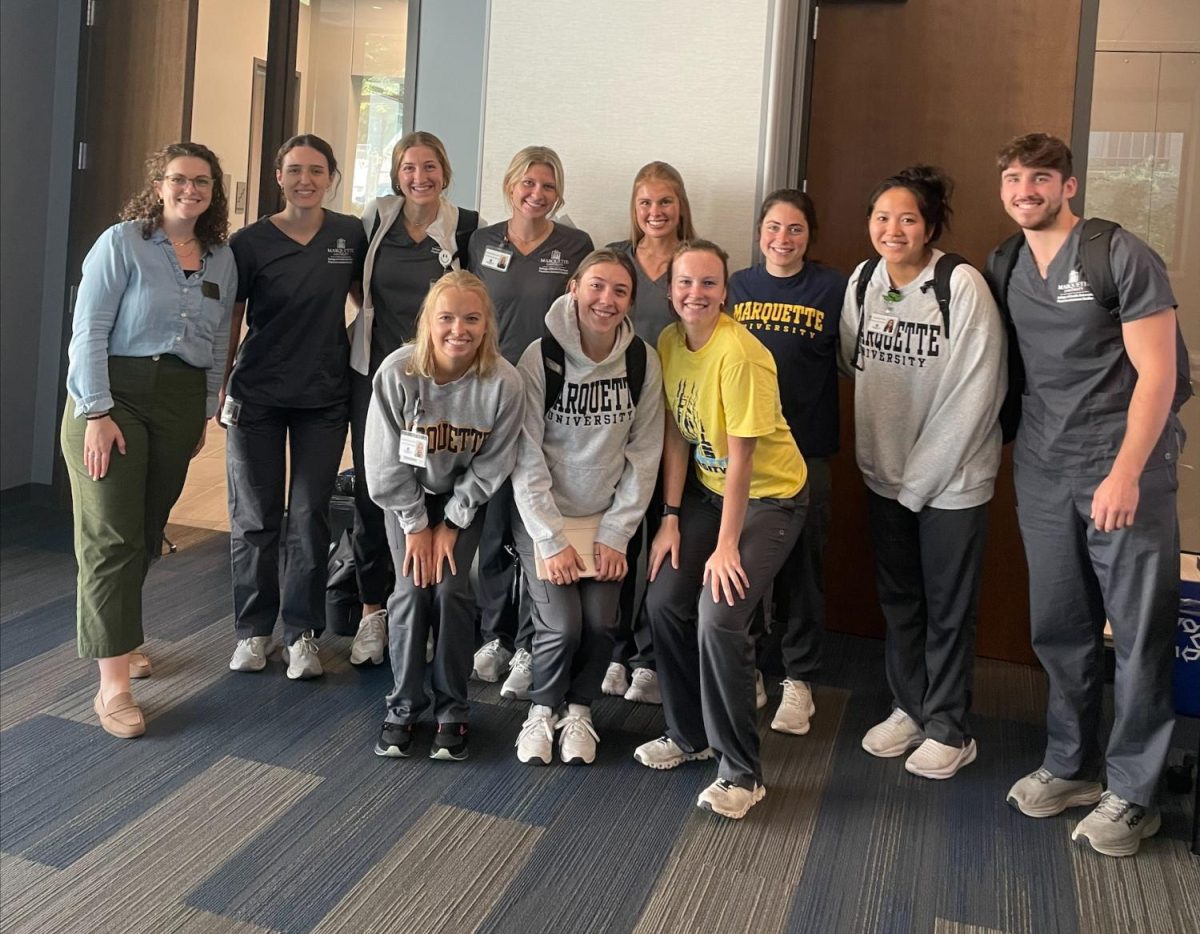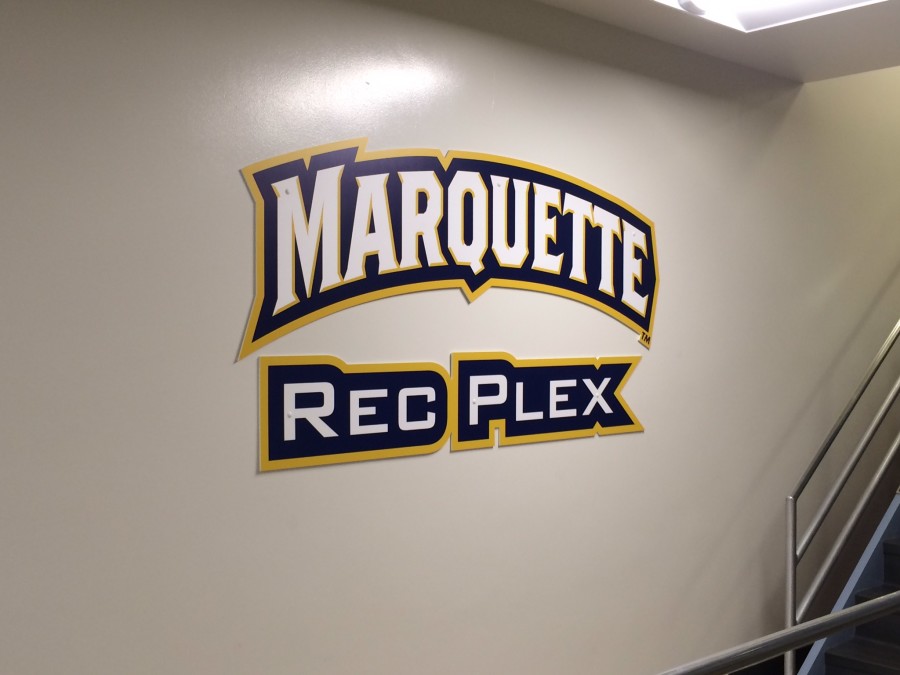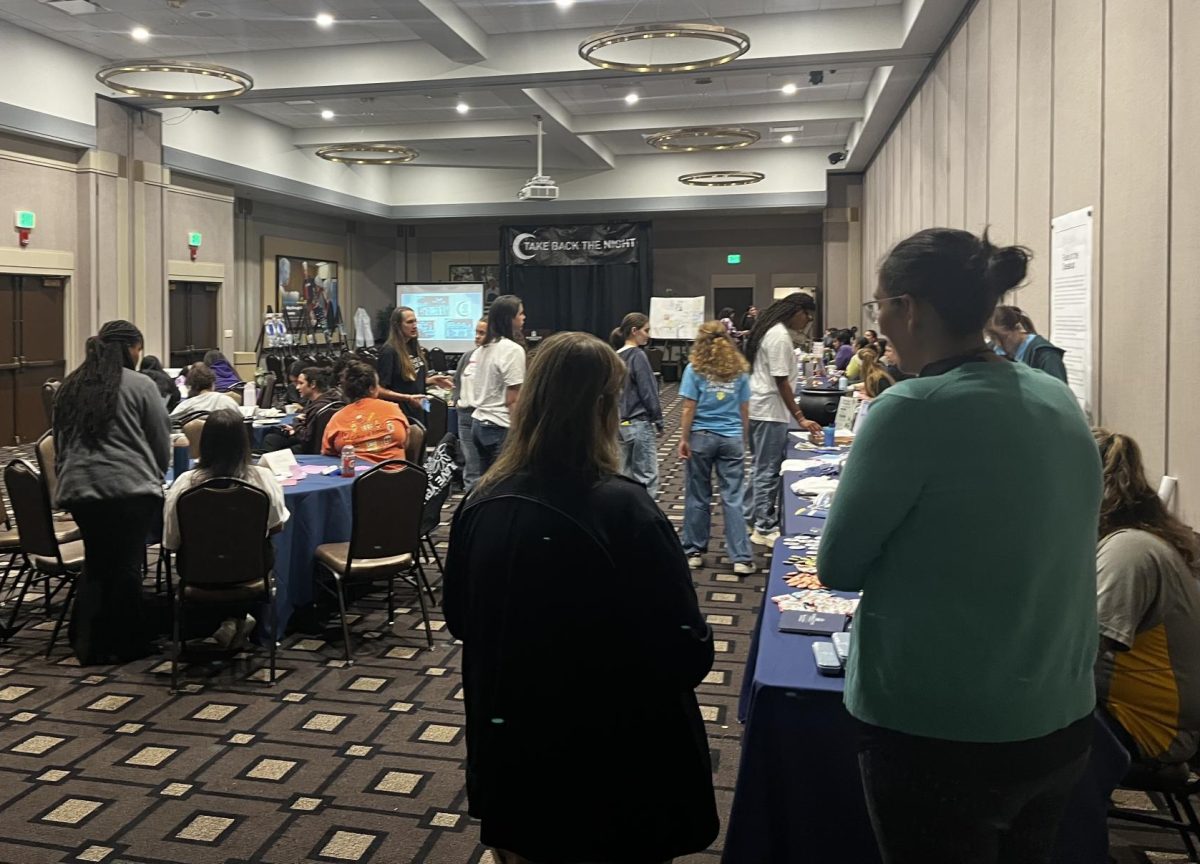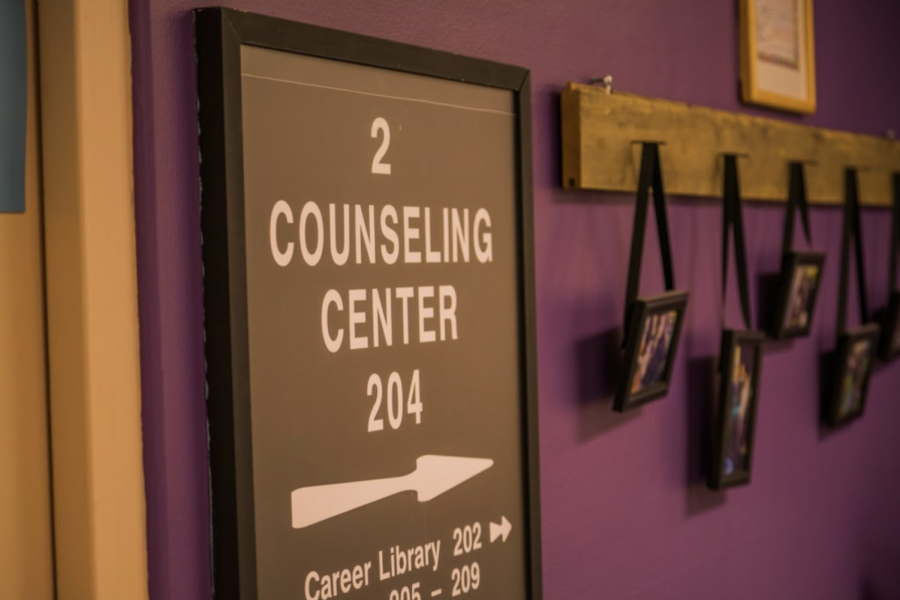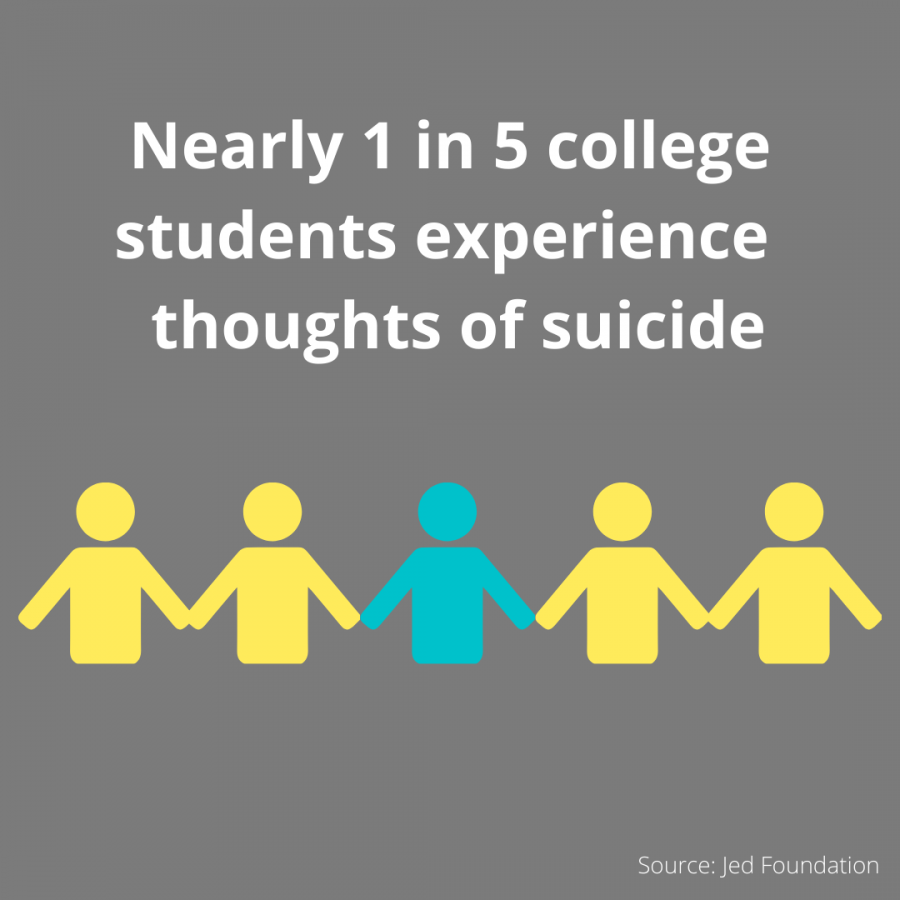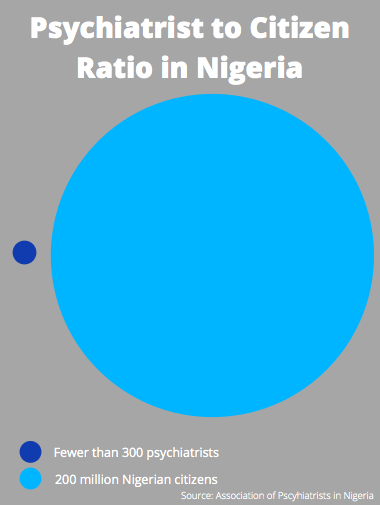Pop music blasted out of the open door on the first floor of the 707 Building as students walked out with freshly painted tote bags displaying messages about hope and positivity.
Just over a week ago, on Sept. 30, dozens of Marquette students filed into Suite 130 in the 707 Hub for a Suicide Prevention Month tote bag painting event hosted by the Center for Student Wellness and Health Promotion. More than 50 students gathered in the room at a time, eating slices of Ian’s pizza and using the markers and paint provided to create their personalized bags.
Suicide Prevention Month takes place in September as a time to raise awareness, break down stigma, spread hope and share information with people who have been affected. Suicide is the second-leading cause of death among children aged 10-14 and the third-leading cause of death among those aged 15-24 in the United States.
However, Marquette has suicide prevention resources available for students year-round, not just in September.
Emily Drenovsky, counselor and coordinator for Mental Health Advocacy and Outreach at the Counseling Center, said it’s important to identify even the most abstract signs for suicide risk so steps can be taken to intervene before a student is in a place of danger.
Warning signs can include changes in a person’s speech, behavior and mood. A few examples of these are recurring negative talk about oneself, increased use of alcohol or drugs, withdrawal, depression and heightened anxiety. However, there are many other warning signs for suicide risk that may be less obvious to a peer, such as sudden relief or improvement, or giving possessions away.
“It can be shrugged off as typical college behavior or stress, when really it’s maybe something more serious than that,” Drenovsky said. “There’s stigma in the world. Sometimes we aren’t always going to be direct about if we’re struggling or having those thoughts of suicide.”
Bernadette Heitschmidt works as the director of the Center for Student Wellness and Health Promotion, where students can visit to talk one-on-one with professionally trained Peer Wellness Educators about health relating to the eight dimensions of wellness, or just map out a general wellness plan for themselves.
Heitschmidt always thanks students for coming to her in vulnerable situations and trusting her with personal information. She said therapy is a lot about releasing negative thoughts and past experiences in the first few meetings, which is where people often get stuck and don’t return.
“When you’re able to get some good coping mechanisms, it does get better, but I think a lot of people don’t always know that,” Heitschmidt said.
She said suicide awareness is important, but the next step, action, is even more important when it comes to recognizing the warning signs of suicide risk.
“To be the difference when it comes to anything about mental health is to talk about and to continue to strive to bring forth trainings,” Heitschmidt said. “Trainings are so important because [they] give you the tools to help when those situations occur, and they do unfortunately occur.”
Drenovsky hosted the second-ever Lifesavers Suicide Prevention Training on Sept. 25, where she spent around two hours in the AMU teaching a group of Marquette students and staff the warning signs for suicide risk and helping skills for supporting someone in distress. She said the idea of the training came from years of work at the Counseling Center.
“We used to do a version called ‘QPR,’ which stands for ‘question, persuade, refer.’ That’s a large national kind of suicide prevention,” Drenovsky said. “It shifted into Lifesavers in more recent years because it felt like we could tailor it a little bit more to the college student population.”
Timmy Melfi, a junior in the College of Health Sciences, attended the Lifesavers training because he lost someone to suicide a few weeks before the event and said he wanted to become more aware. He said it’s important for college students to be attentive to friends and look out for any noticeable changes in their behavior.
“You can just point out certain examples that you don’t really think of in your day-to-day life,” Melfi said about the importance of knowing the warning signs of suicide.
To better care for the mental health of their peers, Drenovsky said students should try to check in mentally on a level deeper than superficial. She said she often sees individuals who don’t make enough time to have genuine conversations with each other about their well-being.
“They don’t want to go to their friends for help because they’re afraid that they’ll be seen as a burden,” Drenovsky said. “What I always say to those students is, ‘how would you feel if your friend came to you in that situation?’”
Heitschmidt said it’s important for students to know they are not alone in helping peers in their mental health journey, and they should not let the sole burden be put on them. She said these students who have decided to help a friend can always talk to a staff member at the Wellness Center, Counseling Center or Medical Clinic about what they’re dealing with.
“You need to form a community to come up with a plan in order to make sure the person is safe, and it’s better to talk about it than to hold information,” Heitschmidt said. “I think that’s what’s so great about Marquette being a community is what we do in community. We’re there together for and with each other.”
Drenovsky’s role at Marquette is to help students take agency in their own mental health and start to find the ways they can support themselves and grow in their adulthood.
“Yes, the university is here to educate, but life is so much bigger than that. Building some of these skills to support ourselves in stressful situations is an enormous part of the learning of college as well,” Drenovsky said.
Drenovsky and Heitschmidt both expressed that mental health is still a taboo topic that many people, including college students, don’t like to talk about. Heitschmidt said people seeking help can have a multitude of negative emotions including embarrassment and invalidation of feelings.
Heitschmidt mentioned several other events the Wellness Center puts on annually, including the “Out of the Darkness” suicide prevention walk with the American Foundation for Suicide Prevention in April and the upcoming “Take Back the Night” observance on Oct. 30, which addresses domestic violence.
“Suicidal thoughts can be paired with a lot of different things,” Heitschmidt said. “It can absolutely be because of sexual violence or harassment or stalking.”
Heitschmidt is an alumna of the Clinical Mental Health Counseling master’s program, which prepares Marquette graduate students to have a career as a counselor in a variety of settings. The program is hosting an information session on Oct. 30 and an open house on Nov. 9, with registration available online.
Additionally, as of 2022, MUPD has a Behavioral Health Unit which works closely with the Counseling Center and specifically allows police to look for options other than criminal justice in cases of mental health-related incidents.
“Help is available, and you are not alone,” Drenovsky said. “There are resources, and people care about you.”
If you or someone you know is experiencing a mental health crisis, call or text 988 immediately. The Suicide and Crisis Lifeline is also available at 988lifeline.org. For additional support, visit Marquette’s Center for Student Wellness and Health Promotion or the Counseling Center.
This story was written by Mia Thurow. She can be reached at [email protected].


